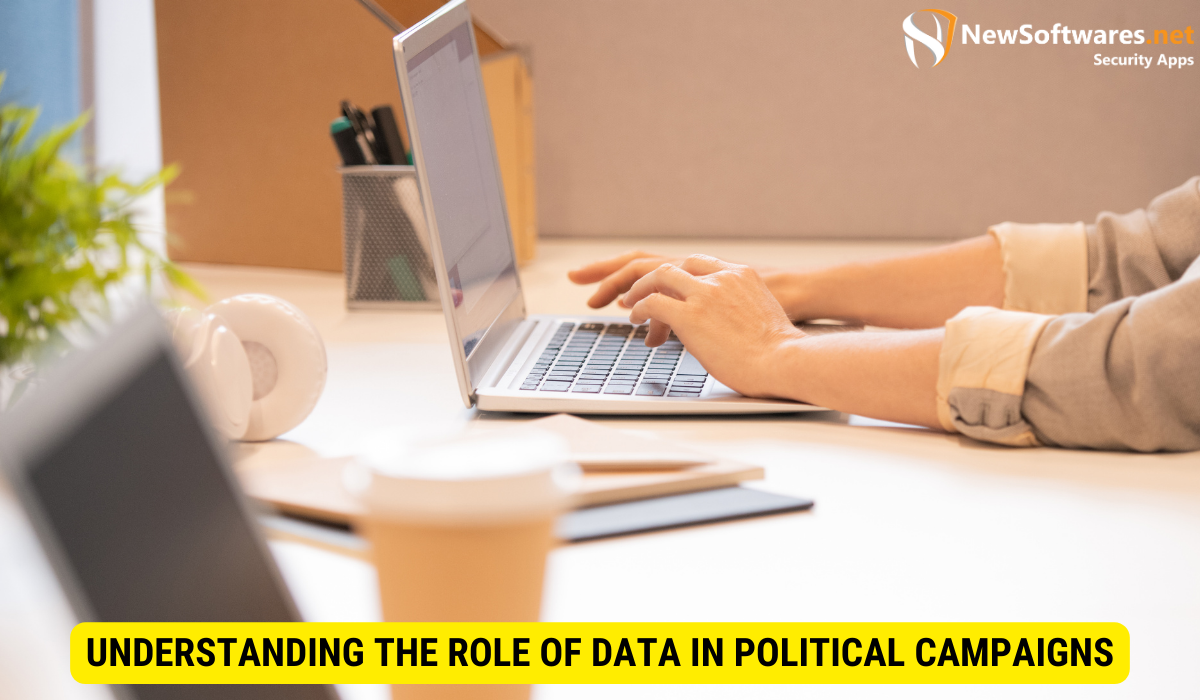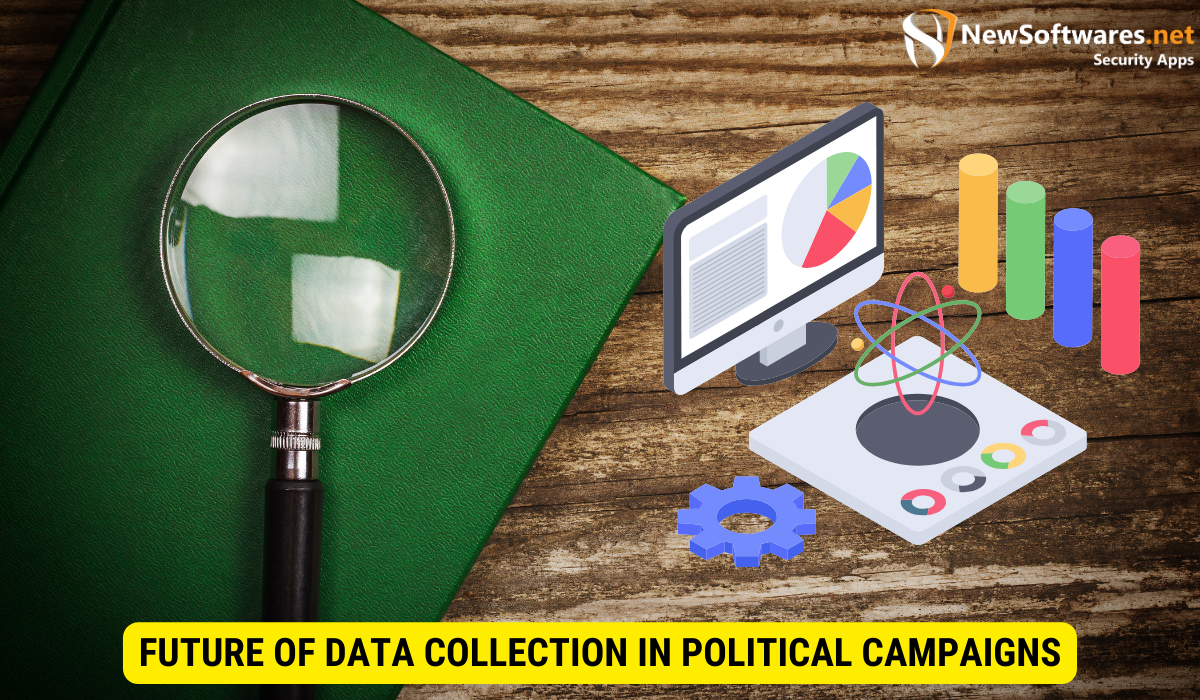Privacy advocates express concerns about the extent and use of data collected by political campaigns.
“Privacy advocates say data collected by campaigns may not be what?” is a common question raised in today’s political landscape. In this digital age, political campaigns rely heavily on data collection to understand voter behavior, develop targeted messaging, and strategize campaign efforts. However, privacy advocates argue that the extent and use of this data can raise concerns about individual privacy, informed consent, and potential misuse.
Understanding the Role of Data in Political Campaigns

The Importance of Data Collection in Modern Politics
Data collection plays a crucial role in modern political campaigns. It enables campaign teams to gain insights into voters’ preferences, concerns, and behaviors. By analyzing this data, campaigns can tailor their messages to specific demographics and target potential supporters more effectively. This level of personalization has become increasingly vital as campaigns aim to connect with voters on a more individualized level.
Data collection methods vary but often involve acquiring information such as voting history, demographic data, social media activity, and consumer behavior. Campaigns can compile extensive voter profiles through surveys, online tracking, and data brokers, allowing them to create sophisticated strategies for mobilizing support.
How Campaigns Use Collected Data
Once campaigns have collected vast data, they employ various techniques to harness its potential. One common approach is micro-targeting, which involves tailoring campaign messages to specific subsets of the electorate based on their demographic or behavioral characteristics. By segmenting voters into smaller groups, campaigns can create highly personalized and persuasive content that resonates with each target audience.
Data also informs campaign decision-making processes. It helps identify key swing voters, determine the most effective channels for reaching them and shape campaign strategies. This data-driven approach allows campaigns to allocate resources efficiently and maximize their impact on election outcomes.
Furthermore, data collection and analysis enable campaigns to identify emerging trends and patterns among voters. By examining the data, campaign teams can gain insights into the issues that resonate most with different demographics. For example, they may find that younger voters are particularly concerned about climate change, while older voters prioritize healthcare. Armed with this knowledge, campaigns can craft messages and policies that address these specific concerns, increasing their chances of winning over these voter groups.
In addition to tailoring messages, data collection helps campaigns identify potential supporters who may not be actively engaged in the political process. By analyzing voter profiles, campaigns can identify individuals with a history of voting sporadically or not. With this information, movements can develop targeted outreach strategies to encourage these individuals to participate in the electoral process. This could involve personalized mailers, phone calls, or digital advertisements to motivate these potential supporters to cast their votes.
Moreover, data collection allows campaigns to monitor the effectiveness of their messaging and strategies in real time. By tracking voter responses and engagement with campaign materials, teams can quickly identify what resonates with voters and what is not. This feedback loop enables campaigns to make timely adjustments and refine their approach to maximize impact. For example, if a campaign ad is not generating the desired response, the data can indicate the need for a different approach or message.
Additionally, data collection plays a crucial role in fundraising efforts. By analyzing donor data, campaigns can identify individuals more likely to contribute and tailor their fundraising appeals accordingly. This targeted approach can significantly increase the effectiveness of fundraising campaigns, ensuring that resources are allocated to the most promising avenues.
In conclusion, data collection is an essential component of modern political campaigns. It allows campaigns to gain valuable insights into voters’ preferences, tailor messages to specific demographics, and allocate resources efficiently. By harnessing the power of data, campaigns can create personalized and persuasive content, identify emerging trends, engage potential supporters, and make data-driven decisions that maximize their impact on election outcomes.
Privacy Advocates’ Concerns About Campaign Data Collection
Potential Misuse of Collected Data
Privacy advocates raise concerns about the potential misuse of data collected by political campaigns. There have been instances where campaign data has been used for purposes beyond the intent of the initial data collection. Some fear that personal information gathered by campaigns could be shared or sold to third parties without voters’ knowledge or consent. The unauthorized use of campaign data can raise significant privacy and security risks for individuals.
The Question of Informed Consent
Another area of concern for privacy advocates is the question of informed consent. Given the vast amount of data collected, it is challenging for individuals to fully comprehend how their personal information will be used. Privacy advocates argue that campaigns should be transparent about their data collection practices, explaining what data will be collected, how it will be used, and whether it will be shared with third parties. Without clear and accessible information, individuals may unknowingly provide their data and unknowingly consent to its use for purposes they may not agree with.
The Legal Landscape of Data Collection in Politics
Current Laws and Regulations
The legal landscape surrounding data collection in politics is complex and continually evolving. In many countries, including the United States, laws and regulations govern the collection, use, and protection of personal data. However, these laws often lag behind technological advancements, leaving gaps in privacy protection.
For example, the Federal Election Commission regulates campaign data collection and usage in the United States. At the same time, general privacy laws, such as the Health Insurance Portability and Accountability Act (HIPAA) and the Children’s Online Privacy Protection Act (COPPA), have limited application in the context of political campaigns. State-level regulations also play a role, with some states imposing additional requirements or restrictions on data use.
Proposed Changes to Data Collection Laws
In response to growing concerns about data privacy, there have been calls for stricter regulations on campaign data collection. Some propose expanding existing privacy laws or creating new ones tailored to political campaigns. These proposals aim to give individuals greater control and transparency regarding using their data, ensuring campaigns obtain informed consent and establish clear data-sharing boundaries.
The Impact of Data Collection on Voters
The Influence of Data on Voter Behavior
Data collection has the potential to significantly influence voter behavior. Targeted messages and personalized content can sway voter decisions, shape perceptions, and mobilize individuals who may have otherwise been disengaged from the political process. By reaching voters individually, campaigns can tap into their concerns, values, and aspirations, fostering a deeper connection and increasing the likelihood of support.
Privacy Implications for the Average Voter
While data collection provides campaigns with valuable insights, it also raises privacy concerns for the average voter. Many individuals may be unaware of how much their personal information is being collected and utilized by political campaigns. Furthermore, they may have limited control over sharing, storing, and protecting their data. This lack of transparency and control can erode trust and undermine individuals’ confidence in the democratic process.
Future of Data Collection in Political Campaigns

Technological Advances and Their Potential Impact
The future of data collection in political campaigns is closely tied to technological advancements. As technologies evolve, so do the methods of data collection. Artificial intelligence, machine learning, and predictive analytics are already being used to extract deeper insights from voter data, enabling campaigns to further refine their messaging and strategies.
However, with these advances come additional privacy concerns. As campaigns delve into more extensive data collection and analysis, it becomes crucial to strike a delicate balance between harnessing the benefits of technology and safeguarding individual privacy rights.
Balancing Voter Privacy with Campaign Strategies
Moving forward, it is essential to address the concerns raised by privacy advocates while acknowledging the value of data in political campaigns. Striking a balance between voter privacy and campaign strategies requires clear and enforceable regulations, informed consent mechanisms, and transparent data handling practices.
Key Takeaways
- Data collection is crucial in modern political campaigns, allowing campaigns to tailor messages and strategies to specific voter demographics.
- Privacy advocates raise concerns about potential misuse of collected data and the need for informed consent.
- The legal landscape surrounding data collection in politics is complex, and regulations often lag behind technological advancements.
- Data collection can significantly impact voter behavior and raise privacy concerns for individuals.
- The future of data collection in political campaigns depends on technological advances and the ability to balance privacy and campaign strategies.
FAQs
Why is data collection important for political campaigns?
Data collection helps campaigns understand voter behavior and tailor their messaging and strategies accordingly.
What are privacy advocates concerned about regarding campaign data collection?
Privacy advocates are concerned about potential data misuse, the lack of informed consent, and the impact on individuals’ privacy rights.
What are some proposed changes to data collection laws in politics?
Proposed changes include expanding existing privacy laws, creating new regulations specifically for political campaigns, and giving individuals more control and transparency over their data.
How does data collection impact voters?
Data collection can influence voter behavior through targeted messaging and personalized content, but it also raises privacy concerns and erodes trust in the democratic process.
What is the future of data collection in political campaigns?
The future of data collection relies on technological advancements, striking a balance between privacy and campaign strategies, and implementing clear regulations and transparent practices.
